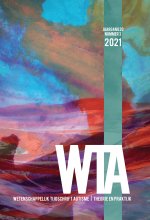
Sociale inclusie en ASS in het voortgezet onderwijs: wat is er nodig?
Productgroep WTA 2021-3Omschrijving
Sinds de invoering van de Wet Passend Onderwijs is geprobeerd leerlingen die extra aandacht nodig hebben, onder wie leerlingen met autisme, te includeren in het regulier voortgezet onderwijs. Cijfers wijzen uit dat dit maar zeer ten dele gelukt is. Dit kan (mede) het gevolg zijn van het feit dat inspanningen vanuit de scholen tot op heden met name zijn gericht op de speciale onderwijsbehoeftes van deze leerlingen en minder op het sociale domein, waarmee wordt bedoeld ‘het naar school gaan om het gevoel te hebben ergens onderdeel van te zijn’ (sense of belonging). De centrale vraag in dit kwalitatieve onderzoek is in hoeverre jongeren met autisme binnen het regulier onderwijs deze sense of belonging ervaren en wat hiertoe nodig is. Dit is onderzocht door middel van literatuuronderzoek en focusgroepen met (oud-)leerlingen met autisme. De eerste voorlopige resultaten laten zien dat leerlingen met autisme aangeven weinig contact te hebben met hun medeleerlingen wat wordt bemoeilijkt door een te drukke omgeving (te veel scholieren, te weinig zitplekken, te veel prikkels). Dit alles leidt tot overprikkeling, vermoeidheid, en kan zoveel stress geven dat er nog maar weinig voor nodig is om die dag maar helemaal niet naar school te gaan. De belangrijkste aanbeveling kort samengevat is om de drukte op scholen terug te dringen. Wij concluderen dat sociale inclusie van leerlingen met autisme op scholen essentieel is voor het welslagen van de Wet Passend Onderwijs en niet vanzelf komt: het vereist van scholen actief beleid. Het in dit artikel beschreven project is onderdeel van een omvangrijker project waarin we proberen hiertoe concrete aanbevelingen te ontwikkelen.
Summary
Since the introduction of the Appropriate Education Act, attempts have been made to include pupils with special needs in mainstream secondary education, including pupils with autism. Statistics show that this was only partially successful. This may be partly explained by the fact that the main focus of the involved professionals (school principals, teachers) to date seems to have been mainly on the educational needs of these pupils and less on students’ sense of belonging, i.e. going to school with the feeling to be part of something, a group or community. The central question in this qualitative research is to what extent young people with autism within mainstream education experience this sense of belonging and what is needed for this. This has been investigated by means of literature research and focus groups with (former) students with autism. The first preliminary results show that students with autism indicate that they have little contact with their fellow students, which is complicated by a too busy environment (too many students, too few seats, too many stimuli). All this leads to overstimulation, fatigue, and can cause so much stress that it takes very little to completely skip school that day. In short, the most important recommendation is to create more calm and less crowded environments in schools. We conclude that social inclusion of pupils with autism in mainstream schools is essential for the success of the Appropriate Education Act but it does not come naturally: it requires active policies from schools. The project described in this article is part of a larger project in which we try to develop concrete recommendations for this purpose.
